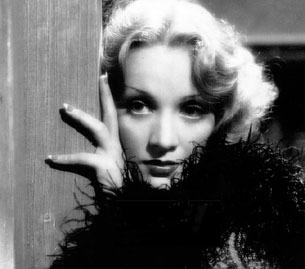Fool’s Gold (2008, Andy Tennant)

Ah, an old-fashioned tribute to both the classic adventure film and the “battle of the sexes” genre. But Matthew McConaughey is no Clark Gable or Tyrone Power and Kate Hudson is certainly no Jean Harlow or Linda Darnell - not in the least. Instead, they are the lovelorn lollies and co-conspirators in this retarded treasure hunt film. Not only is there no chemistry between them to speak of, but Matthew McConaughey (perhaps the blandest actor in Hollywood) is given all of the masculine kudos and gold-digging chutzpah. His character is also oddly rewarded for his mental deficiencies and irresponsibility, which includes flying a plane based on knowledge he learned from playing his play station. Lovely.
Though Hudson basically holds her own during the chase/fight sequences and vocal disputes (and is apparently working towards her PhD), any progression her character may have made for women in that regard is entirely discredited by the film’s ending - which shows a pregnant Hudson stroking her belly by her newly regained McConaughey husband’s side as he is applauded at a museum opening. I look forward to seeing Hudson in the kitchen with the kids while McConaughey hunts treasure in the future.
Most appalling sequence: Character introductions!
McConaughey: He’s looting around for treasure under water and discovers the first piece of the physical puzzle for their epic treasure hunt after an accident he causes sinks his boat.
Hudson: She’s hysterically crying and screaming at herself about her self-confidence while she looks in a mirror.
She is clearly the smarter, braver, and more successful of the two, but for some reason she’s made to look like a fool next to McConaughey’s swaggering, imbecilic self.
Definitely, Maybe (2008, Adam Brooks)

This is probably my favorite of the romantic comedies I’ve had to sit through so far this year.
The film is mainly about a man, namely, Ryan Reynolds’ Will Hayes, but women are the force behind all of his life decisions and career goals. You’ve probably already seen the trailer, but Hayes’ job is to weave a web of intrigue for his young daughter, Abigail Breslin, regarding the myth of how he met her mother, which coincides with his decisions and goals. He settles upon three past girl friends to tell the tale - Emily (Elizabeth Banks), Summer (Rachel Weisz), and April (Isla Fisher).
Each woman represents three diverse, and slightly clichéd stereotypes - Emily is the blonde college sweetheart and girl next door, Summer is the raven-haired, sexy career gal, and April is the flighty, artsy, best friend and redhead. Despite their clichéd nature, these characters do not fall prey to their roots in the least. For instance, Emily decides she doesn’t want to be the Jackie O to Hayes’ half-baked ideas of political candidacy and hit’s the road, Summer, a journalist, chooses her career over her love for Hayes by doing her job and writing a slandering article about his boss when she had to, and April gets her act together, goes back to graduate school, and earns a high-level career at Amnesty International.
And instead of ridiculing these women for their decisions like other romantic comedies tend to do, Hayes’ respects their decisions and in the end, admires each for their guts and determination. This is of the utmost importance because he is telling the story to his daughter - obviously, a young, impressionable mind, and he shouldn’t want her to get the wrong, un-feminist idea about the break-up of a relationship. By showing his daughter that he’s attracted to strong women, she’ll be more inclined to be one herself.
Though the film doesn’t really dive into the real reasons Reynolds is attracted to these women (despite the obvious) or even why they‘re attracted to him, I think the fact that he’s attracted to and relates to each instead of their Fool’s Gold or 27 Dresses counterparts in the first place is potent enough evidence to gain my certified seal of approval.
Definitely, Maybe is truly a refreshingly inoffensive romp into rom-com land.
















